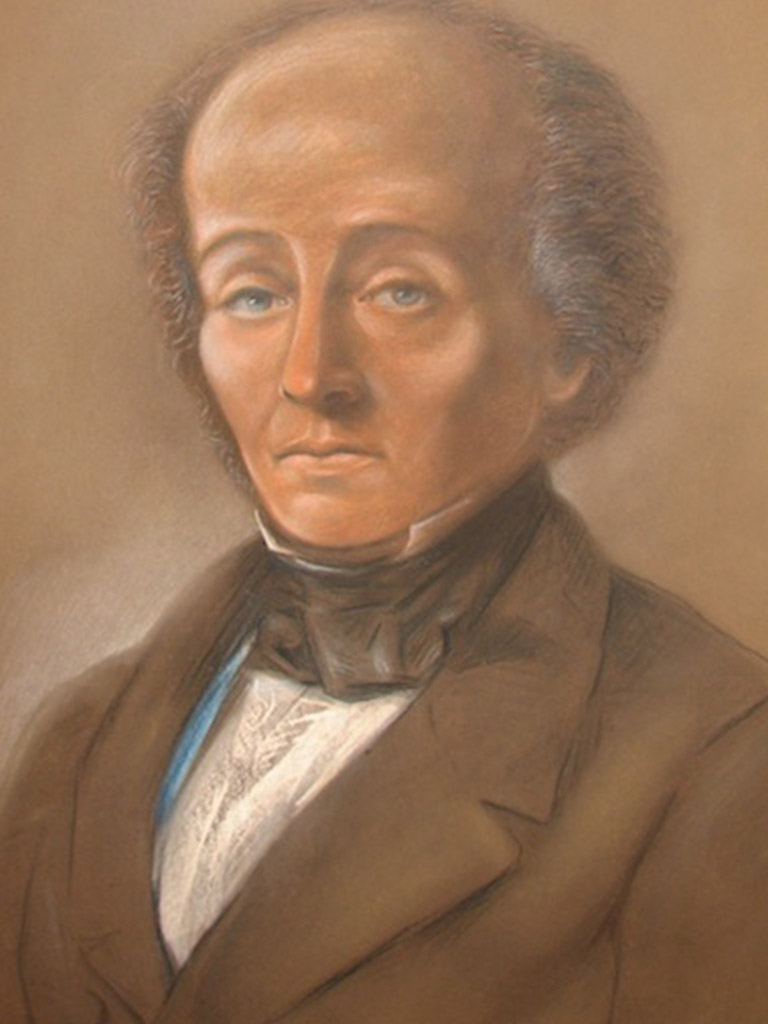The Thomas Moore Musgrave who became the Postmaster of Bath was an extraordinarily capable man. He became famous, as Postmaster of Bath, for the mailing of the “2nd May” Penny Black from the Bath post office – the FIRST stamp in the World. Before settling in Bath he had a varied and illustrious career.
Thomas Musgrave married Elizabeth Hide on the 24th February 1774 at St. Clements’ Church, Hastings and on the 28th December 1774, their only son, baptised Thomas Moore Musgrave, was born in London. Apart from becoming his father’s chief beneficiary when he was 14 years old, (his mother having died when he was 2 years old) we know little of his whereabouts. We do know he lived overseas and was fluent in many languages, particularly German and Portuguese.
We rediscover him in 1802 when he has become Parliamentary Private Secretary to Lord Pelham (Secretary of State for the Home Department). He was known to be an author and a pamphleteer – several of these can be found in the British Library archives. He also translated some famous literary works.
In 1806 Musgrave accepted, at the hands of Lord Minto, the post of Secretary to the Government of Ireland. When this term was served he returned to his position, which he had taken up in 1804, as Secretary and Confidential Superintendent of the Alien’s Office. This had been kept open for him by the Secretary of State, Earl Spencer. By 1816 due to a Government shake-up Musgrave was released from the Alien’s office.
But the judicious and able manner with which he had performed its important duties induced the Treasury Commissioners to aware him with a pension. At this time the Earl of Chichester (Postmaster General) appointed Musgrave to become the Mail Agent for Lisbon, Portugal. He became closely associated with some of the most distinguished families in Lisbon. This was the era of the Peninsular War and the political information he obtained was regularly communicated to the Postmaster General in London. On occasion this was passed directly to Cabinet Ministers. In 1821 Francis Freeling (Secretary to the Post Office) appointed Musgrave as Postmaster and Mail Agent for Falmouth, Cornwall, the premier overseas Packet station in the UK.
By 1824 Musgrave had completed the complicated handover of the control of Mail Packets from the GPO to the Admiralty. His additional role as the Falmouth Postmaster was handed to a William Gay. From 1824 until 1833 Musgrave became Comptroller of the Two-penny London post. He was again involved in a formidable handover of this postal system into the control of the GPO.
As a result of this achievement Musgrave was offered Postmaster Generalship of Jamaica. However he refused because of the adverse affect on his health from the climate. From 1833 until his death in 1854 he was the Postmaster of Bath. During this time he is believed to have been instrumental in mailing two items which have made him famous.
To explain: Great Britain introduced the first stamps in the World. One of the designs was an engraved image of Queen Victoria on a black background – now known as the Penny Black. These were to be issued on the 6th May, 1840. However, on the 2nd May, 1840 an item of mail left Bath Post Office making it the first mailing of a stamp anywhere in the World.
The other item was a printed postal stationery item designed by William Mulready. It was blue because it bore a twopenny rate. Musgrave must have received his Mulready envelopes on 6th May. Only three twopenny Mulready envelopes are known to exist (anywhere) which were used on the 6th May 1840. This was the first day of posting. It was addressed to a Miss Isabella Tudor of Kelston Knole, Bath. Her father a noted surgeon, would have been known by Musgrave. Is it possible that the Bath Postmaster included a note suggesting she keep it for posterity? Well she obviously did. This very rare item is part of the museum collection.
On 4 September 1854 Musgrave died at 10 Edward Street, Bath. His daughter Ann, aged 32 was living with him at the time. In his Will he leaves everything to her. Very recent research has discovered that Ann married her father’s trusted Chief Clerk, Jabez Rich and they had four children. After moving to Manchester he became the Postmaster of Liverpool.

